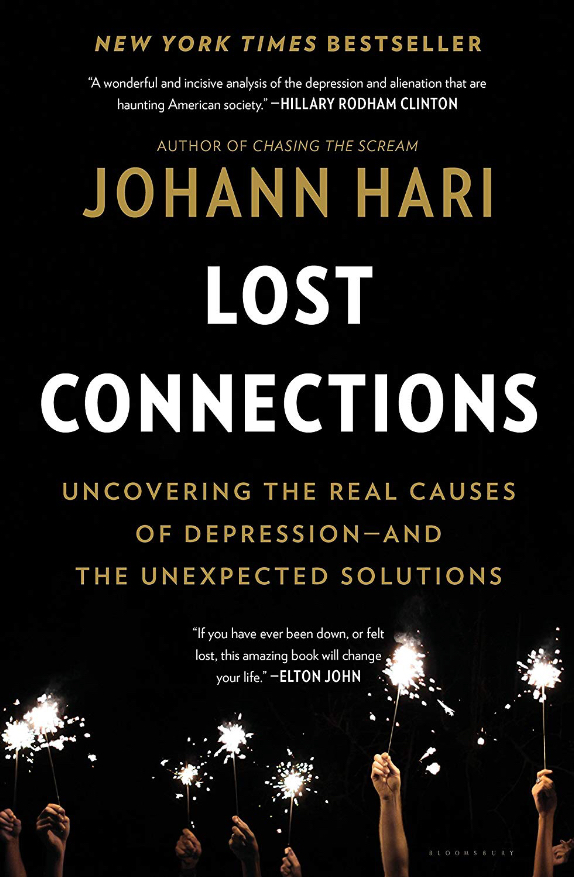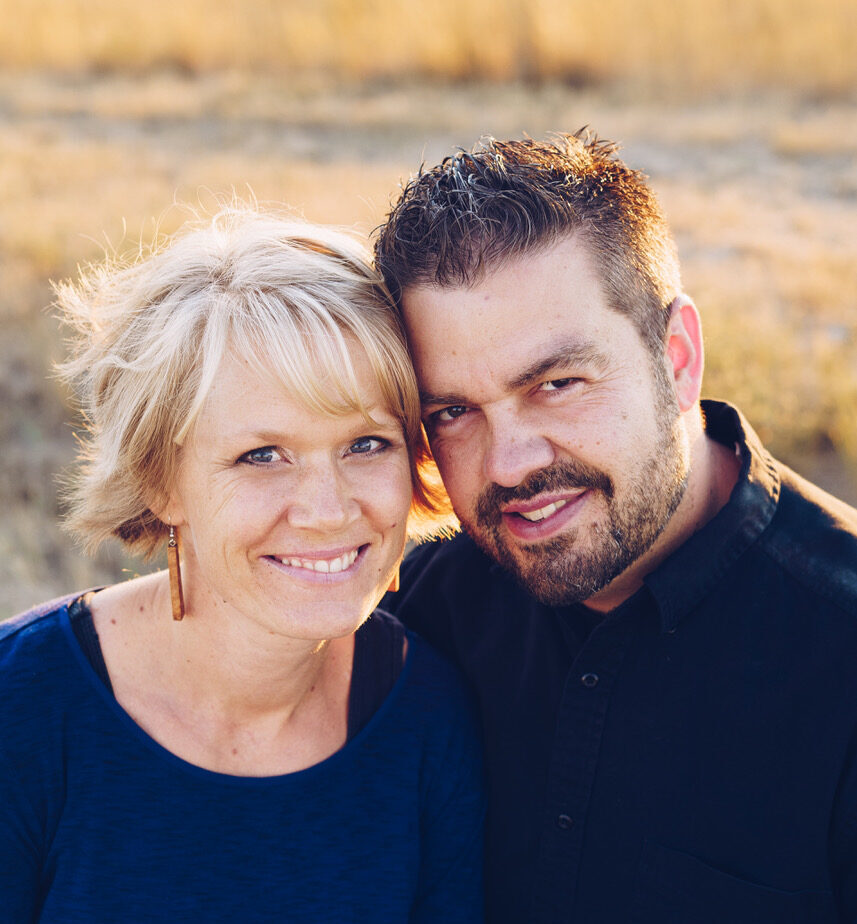9 Causes of Depression
 By Jesse Jost
By Jesse Jost
Johann Hari is someone who has struggled with extreme depression and was on antidepressants for 12 years. In his insightful book “Lost Connections,” he questions the common story peddled by many in the drug industry. For years he believed that depression was caused by a broken brain – a chemical imbalance – and the way to fix it was through pills that altered the brain chemistry. After years of pills that only caused a temporary upswing in mood, followed by years of nasty physical side effects, Johann wanted to take a closer look at the causes and remedies for depression. He found that depression has many causes other than simply biology. There are psychological and sociological causes as well. Rather than a mere imbalance in the brain, depression is mental and emotional pain that is a natural response to a broken world.
Here is my summary of the 9 causes of depression that Johann discovered.
- Disconnection from meaningful work
Some depression can be caused by work that makes people feel they have no control over their roles or position and that their opinions don’t matter. Other job factors that lead to depression include a perpetual sense that you are falling behind and the work keeps piling up no matter how hard you try. Also jobs that have a low reward to effort ratio make a person feel trapped, i.e. hard work that is unnoticed and under appreciated.
2.Disconnection from other people
Loneliness, a sense that you are alone, that you are not part of a group that protects and values you, can play a large role in depression. The scary thing is that loneliness snowballs, and causes people to “shut down socially and be more suspicious…You become hypervigilant. You start to take offense where none was intended, and be afraid of strangers. You start to be afraid of the very thing you need most.” We all need to feel like we belong, that we have people who will listen and accept us, and that we play a valuable role in their lives as well.
- Disconnection from meaningful values
We are motivated by two categories of motivations. One is “extrinsic” motivation. We will do something we’d rather not do, so that we will get something that we do want. For example, we will take a job we hate so we have money to pay the bills, do a painful workout so we can have a better body, etc. The other type of motivation is “intrinsic” motivation. We do something just for the sheer pleasure of it, or the action matches our convictions so we want to do it regardless of attention or reward. Johann argues that the more your day is filled with time spent doing only the things that are extrinsically motivated, the more likely you’ll spiral into depression. Johann also believes that our culture places too much significance on wealth, status, and material goods, so that people feel the acquisition of these things is what will make them happy. But people end up living years of drudgery, doing the things they hate, trying to chase the hollow dream.
- Disconnection from childhood trauma
Going through trauma during your formative years greatly increases your chances of depression in later years. Emotional or sexual abuse can affect you deeply in ways you can’t understand. It can make you feel like you deserved the trauma and that you are unworthy of happiness. One of the doctors Johann quoted says that when a person is depressed, we “need to stop asking, ‘what is wrong with them?’, but instead, ‘what happened to them?’”
- Disconnection from status and respect
Depression can begin with the loss of a job, or a feeling that you have lost the respect of your peers. Obsessing over your social status also creates stress and insecurity. Depression is filled with feelings of worthlessness and being a failure. These feelings affect our posture and social interactions, and accumulate into even more fear and social failure.
- Disconnection from Nature
Multiple studies are finding that depression is worse in the city, while time spent outdoors, surrounded by nature can greatly lift a mood, create a more positive outlook, and improve the ability to concentrate. The reasons for this are uncertain, but on the authors Johann interviewed speculated that “When you are depressed…you feel that everything is about you. You become trapped in your own story and your own thoughts…Becoming depressed is becoming a prisoner of your own ego.” Being in nature creates a sense of awe, that you belong to a “grander system.”
- Disconnection from a hopeful or secure future
Depression creates a dark hole that makes you believe that things will always be this way, that things will never improve. It becomes hard to even have a sense of a hopeful future. One of the best ways to help a depressed person is to hold on to hope for them and remind them that this dark place won’t last forever.
- Genetics
The final two causes of depression are biological, but are more complex than the common “depression-is-lack-of-serotonin” story. In some people there does seem to be a genetic predisposition for depression. People who have these genes are more vulnerable to depression that is triggered by trauma.
- The Brain that changes itself
Brain scans of depressed people show that depression can change the physical shape of the brain, but it’s not just a lack of serotonin. Brain pathways and connections change based on the pattern of thought habits. The more certain types of thoughts and emotions are experienced, the connections in the brain grow, making those thought patterns even harder to break. Depressive thoughts and outlooks can grow into captivating habits that perpetually drag you along though painful mental paths. The good news is that with help from others and solid community, the brain pathways can be changed. It is possible to again develop more positive mental habits. Hope can return.
Conclusion
While I found Johann Hari’s diagnosis of the problem fascinating, I felt his solutions were not as strong as they could be. As an atheist, Johan admits that solutions involving God are out of bounds for him. It’s sad, because I kept thinking about how a restored relationship with God though the gospel of Jesus could bring so much healing to the pain from these causes.
The gospel of the kingdom gives our work new meaning and purpose.
The grace and forgiveness experienced in rightly expressed Christian community should provide truly meaningful connection with other humans.
When we surrender our wills to the One who designed us, out values will start to line up with ideas and convictions that bring true happiness.
A firm belief in God’s sovereignty allows us to overcome our abuse or trauma and find healing as we look for ways that God brings beauty from ashes.
Recognizing our worth as loved beings made in the image of God with indescribable value bestows a greater sense of status and respect than society could ever give us.
Nature becomes the glory of God on display and a doorway to awe and worship.
The hope of heaven, a restored earth, and reconnection with loved ones we have lost, gives the greatest hope and anticipation we could ever dream of.
I’m not saying that becoming a Christian will take away your depression. Many great Christians suffered severe bouts of depression for most of their adult lives, including Martin Luther and Charles Spurgeon. What I am saying is that Christianity, rightly understood, along with experiences in cross-shaped community, can bring relief and healing to many of the painful causes of depression that millions are increasingly suffering.
This is not a diatribe against seeking medical help for your depression. It’s a complete mystery to me how the physical body affects the emotions. I’m sure there are times that depression is caused by physical factors like lack of sleep, or post-partum hormones, chronic pain or something even deeper. And physical factors like diet and exercise, can be powerful antidepressants. Also the symptoms of grief mirror those of depression.
If you are suffering depression, I would never claim to understand why or suggest a simplistic solution. I don’t know why you have to suffer or how long you will have to bear it. But I do know you can’t find hope alone. You need to find other grace and hope-filled Christians who can walk this painful road with you. People who will offer hope and a non-judgemental listening ear.
